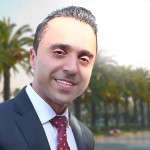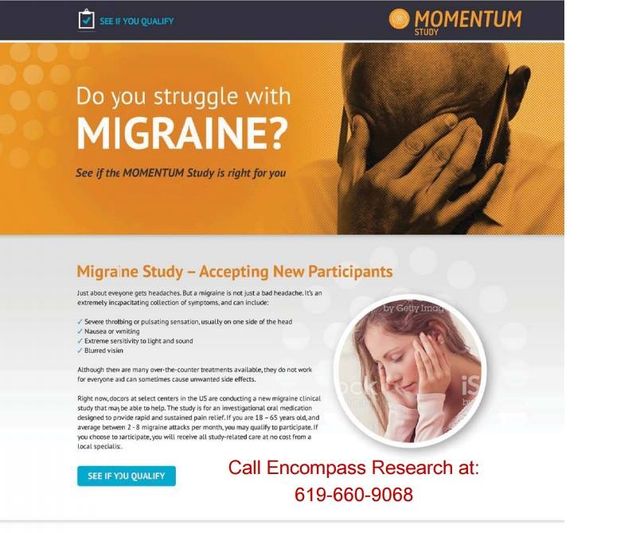Living with Attention Deficit Hyperactivity Disorder (ADHD) presents unique challenges that can impact various aspects of life, from academic and professional pursuits to personal relationships. Fortunately, there are several treatment options available to manage symptoms and improve overall quality of life. This comprehensive guide will explore the three primary avenues for managing ADHD: medication, therapy, alternative approaches, as well as lifestyle modifications, educational support, and holistic interventions. By understanding the benefits and considerations of each approach with the help of doctors such as Dr. Hanid Audish, individuals with Attention Deficit Hyperactivity Disorder, along with their families and healthcare providers, can make informed decisions to tailor treatment plans to their specific needs and preferences.
Medication Management: Finding the Right Fit
Medication is often the first line of treatment for ADHD, with stimulant and non-stimulant medications being the most commonly prescribed. Stimulant medications, such as methylphenidate and amphetamine-based drugs, work by increasing the levels of neurotransmitters in the brain, improving focus and impulse control. Non-stimulant medications, like atomoxetine and guanfacine, target different neurotransmitters to achieve similar effects without the risk of abuse or dependency associated with stimulants. It's essential to work closely with a healthcare provider to find the right medication and dosage, as individual responses can vary widely. While medication can effectively manage symptoms for many individuals, it's important to recognize that it may not be suitable for everyone or may require adjustments over time to maintain efficacy and minimize side effects.
Therapeutic Interventions: Building Coping Skills and Resilience
Therapy plays a crucial role in the comprehensive treatment of Attention Deficit Hyperactivity Disorder, offering individuals strategies to cope with challenges, improve self-esteem, and enhance interpersonal relationships. Cognitive-behavioral therapy (CBT) is one of the most widely utilized therapeutic approaches for ADHD, focusing on identifying and modifying negative thought patterns and behaviors. CBT can help individuals develop practical skills for managing impulsivity, organizing tasks, and regulating emotions, empowering them to navigate daily life more effectively. Additionally, family therapy can provide valuable support for both individuals with Attention Deficit Hyperactivity Disorder and their loved ones, fostering understanding, communication, and collaborative problem-solving within the family unit. By participating in therapy under the guidance of doctors like Dr. Hanid Audish, individuals with Attention Deficit Hyperactivity Disorder can cultivate resilience and develop a toolkit of strategies to thrive despite the challenges they face.
Alternative Approaches: Exploring Complementary Strategies
In addition to traditional medication and therapy, many individuals with ADHD explore alternative approaches to supplement their treatment regimen and address specific symptoms or concerns. These alternative approaches encompass a wide range of practices, including dietary modifications, mindfulness techniques, exercise regimens, and neurofeedback therapy. While research on the efficacy of alternative approaches for Attention Deficit Hyperactivity Disorder is ongoing and findings can vary, some individuals report benefits such as improved focus, reduced impulsivity, and enhanced overall well-being. It's essential to approach alternative approaches with a critical eye, consulting reputable sources and healthcare professionals to ensure safety and effectiveness. While alternative approaches may not be a primary treatment for Attention Deficit Hyperactivity Disorder, they can complement traditional interventions and provide individuals with additional tools to manage their symptoms holistically.
Lifestyle Modifications: Creating Supportive Environments
Beyond formal treatment modalities, lifestyle modifications under the guidance of a doctor like Dr. Hanid Audish can play a significant role in managing Attention Deficit Hyperactivity Disorder symptoms and improving overall well-being. Simple adjustments such as establishing routines, creating organized spaces, and breaking tasks into manageable steps can help individuals with ADHD better navigate daily challenges and maintain focus. Regular exercise and adequate sleep are also essential components of a healthy lifestyle for individuals with Attention Deficit Hyperactivity Disorder, as they can help regulate mood, improve concentration, and reduce impulsivity. Additionally, minimizing exposure to distractions, such as electronic devices and cluttered environments, can create a more supportive atmosphere for individuals with Attention Deficit Hyperactivity Disorder to thrive.
Educational Support: Enhancing Academic Success
For children and adolescents with ADHD, educational support is critical for fostering academic success and maximizing their potential in school. Individualized education plans (IEPs) and 504 plans can provide accommodations and modifications tailored to the specific needs of students with Attention Deficit Hyperactivity Disorder, such as extended time on tests, preferential seating, or access to assistive technology. Collaborating with teachers, school administrators, and educational specialists can ensure that students receive the support and resources necessary to succeed academically despite the challenges of Attention Deficit Hyperactivity Disorder. Additionally, teaching students effective study skills, time management techniques, and organizational strategies can empower them to become more independent learners and overcome academic obstacles.
Holistic Interventions: Integrating Mind, Body, and Spirit
Holistic interventions for ADHD encompass a range of approaches that address the interconnectedness of mind, body, and spirit to promote overall well-being. These may include practices such as yoga, meditation, acupuncture, and herbal supplements under the guidance of doctors such as Dr. Hanid Audish, which aim to balance energy flow, reduce stress, and enhance overall health. While research on the efficacy of holistic interventions for Attention Deficit Hyperactivity Disorder is limited, some individuals find these approaches helpful in managing symptoms and improving quality of life. It's important to approach holistic interventions with an open mind and consult with healthcare professionals to ensure safety and compatibility with other treatment modalities. By embracing a holistic approach to treatment, individuals with Attention Deficit Hyperactivity Disorder can foster greater self-awareness, resilience, and inner peace in navigating life's challenges.
Navigating Attention Deficit Hyperactivity Disorder treatment options requires a comprehensive and individualized approach that takes into account the unique needs and preferences of each individual. By considering medication, therapy, alternative approaches, lifestyle modifications, educational support, and holistic interventions, individuals with ADHD can develop holistic treatment plans that address their physical, emotional, and spiritual well-being. Through collaboration with healthcare providers, educators, and supportive networks, individuals with Attention Deficit Hyperactivity Disorder can cultivate resilience, develop coping skills, and unlock their full potential to thrive in all aspects of life. By embracing a multifaceted approach to treatment with the help of doctors like Dr. Hanid Audish, individuals with Attention Deficit Hyperactivity Disorder can overcome obstacles, achieve their goals, and lead fulfilling lives with confidence and resilience.






Comments